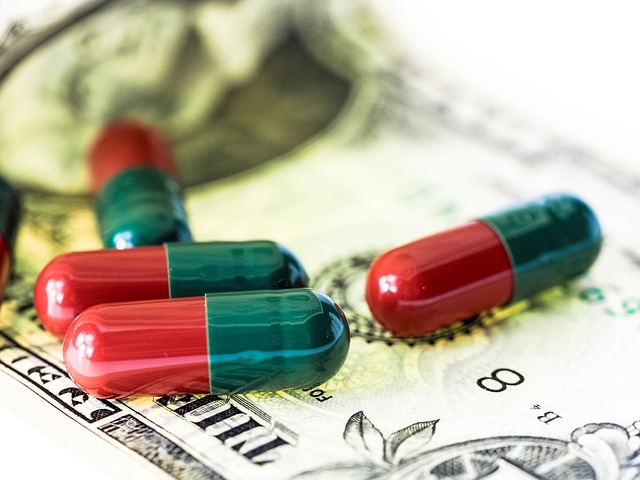The public wants Congress to bring down prescription drug costs, and Congress appears to be taking this issue seriously. A bi-partisan Senate drug bill would lower the price of new prescription drugs that were developed with federal dollars. Senators Chris van Hollen and Rick Scott recognize the insanity behind allowing pharmaceutical companies to profit wildly from the sale of new drugs developed with taxpayer dollars, as most new drugs are.
The van Hollen Scott We PAID Act would limit the price drug companies can charge for drugs developed with research funding from the National Institutes of Health or any other federal agency. If taxpayers are funding the research, they should have a say in the price. But, just to say it, the We PAID Act does nothing to address the price of the hundreds of overpriced drugs already on the market that were developed with taxpayer dollars.
Of note, between 2010 and 2016, 210 new drugs came to market. Every single one of them was developed with NIH funding.
According to Vox, if passed, the law would only affect pricing for about one in five new prescription drugs. It would not affect prices of drugs already on the market. The focus is on drugs with patents derived from research funded by the NIH.
In some cases, the drugmakers hold the patents. In other cases, the federal government holds the patents and licenses them out to drug companies. In still other cases, individuals hold the patents, which were developed with government support.
We PAID would require the establishment of a new nonprofit organization that would set reasonable prices on new drugs with patents developed with federal dollars. To determine a reasonable drug price, first, the National Academies of Science, Engineering and Medicine would look at the price of the drug in other countries, how much money was invested in research and development and distribution costs. Then a diverse committee, including industry people, would take the data and set a “fair list price.” Price increases on all drugs with prices set by committee could not be more than inflation.
If a drugmaker did not adhere to the established price, the drug would go generic. And, the pharmaceutical company could not license any federal patents.
Another bi-partisan bill introduced by Senators Wyden and Grassley would revise the Part D drug benefit to include an out-of-pocket cap and rein in out-of-pocket drug costs for people with Medicare Part D. It also would limit drug price increases in Medicare Part D to no more than inflation. But, many Republicans who support government interference in the drug pricing market on behalf of pharmaceutical companies, through patent protections, oppose government involvement in limiting drug price increases.
Republicans and Democrats in Congress have stacked the deck in favor of pharmaceutical companies through laws that effectively give them monopoly pricing power on drugs they bring to market, even when taxpayer dollars have funded their efforts. It’s time lawmakers leveled the playing field.
Here’s more from Just Care:








…if taxpayers paid for the R&D though government grants as well as the use of publicly funded facilities (such as state universities), the government should hold the patents, period. It is criminal that the pharma companies charge us such outrageous prices for lifesaving medications just so their CEOs and shareholders can financially live the “good life.” Republicans talk about “ACA Death Squads”, but the Pharma corporations, along with legislators who support and vis a vis, are supported via campaign donations, are the real “death squads.”
Some medications, like Insulin for example, which the worldwide wholesale development cost ranges from just over 2$ to around 10.50$ per 1,000 iu, is being so outrageously priced here in the US today (in some cases upwards of 900$ per month) that diabetics are forced to ration their medications or go without. This sort of price gouging is the real “national emergency” as it has a profound detrimental effect on the quality of life for tens of millions of US citizens, far more than refugees fleeing violence in Central America.
Of course a profit minded individual like Mr. Trump as well as members of the Senate and House (on both sides of the aisle who benefit from lobbying and campaign donations by the pharma industry) don’t see it this way. This is the reason more and more people in the northern states head to Canada for insulin and other medications, or to Mexico for dental care and other treatments. Promoting the “general welfare” also includes the health and well being of our citizenry, however corrupt members of our government are more interested in their own personal and political “welfare” than the health of our nation as a whole.